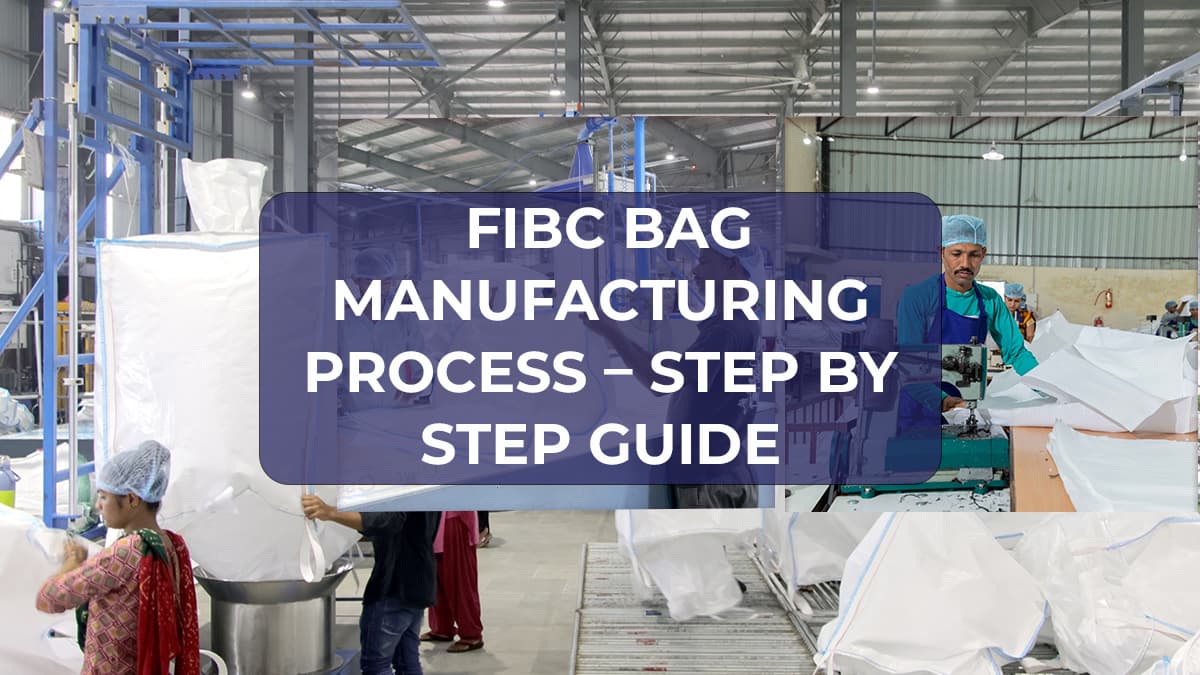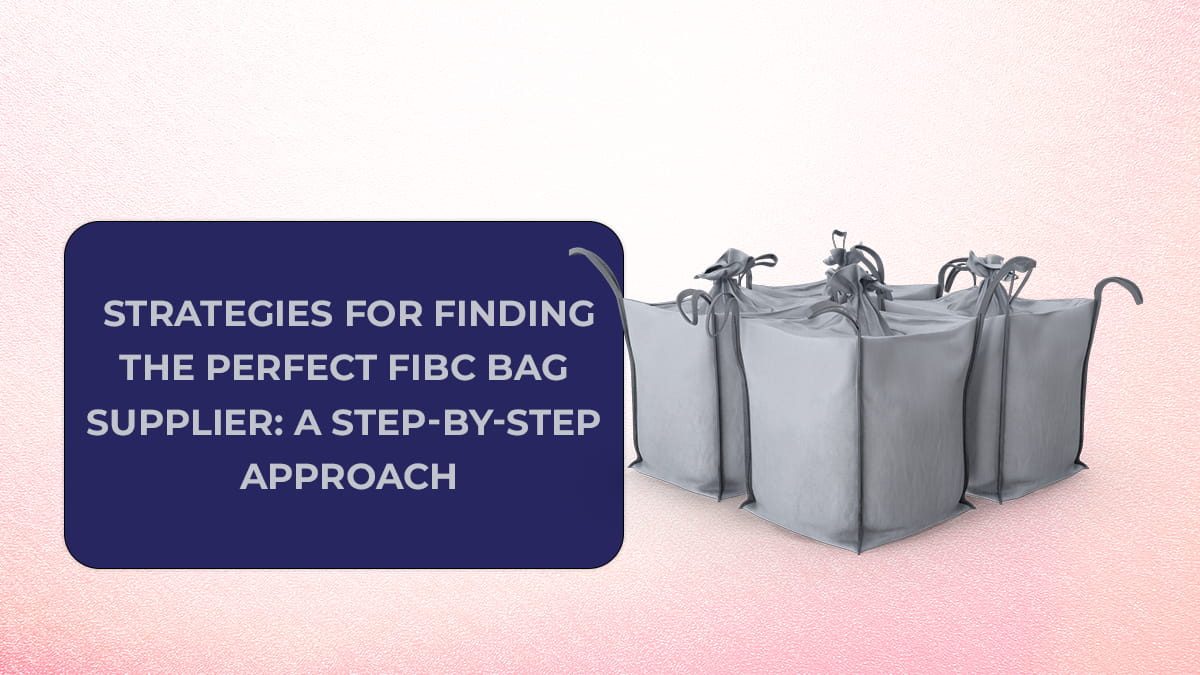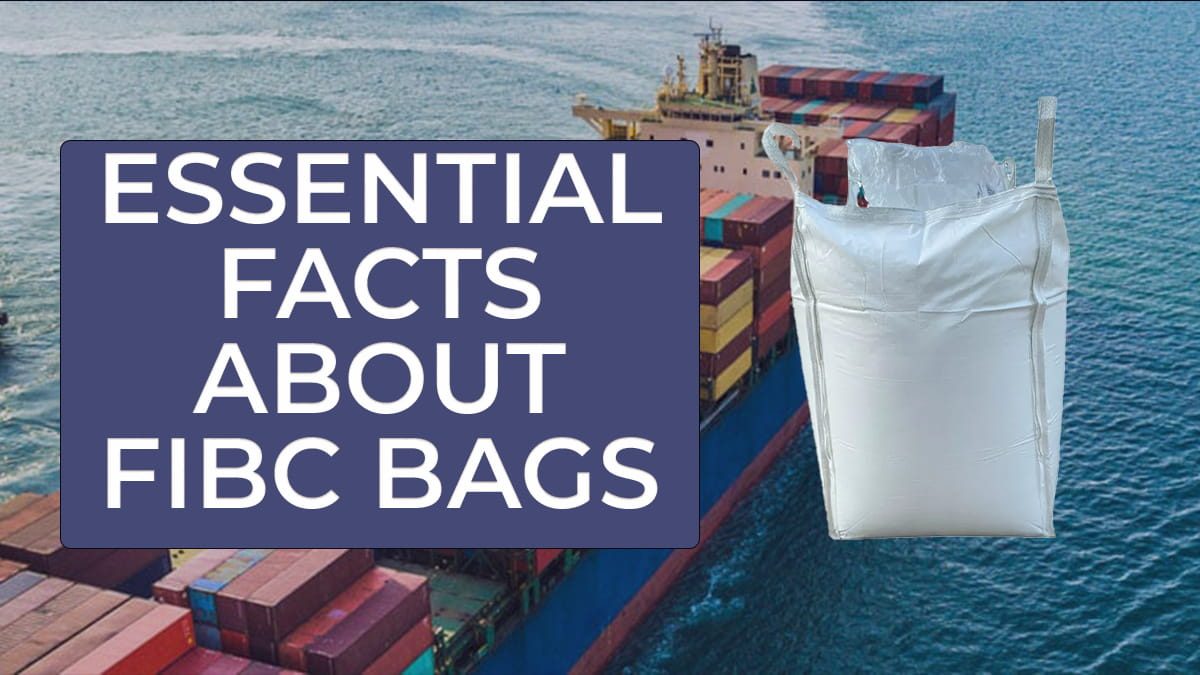The FIBC Bag Manufacturing Process – Step by Step Guide
Manufacturing FIBC (Jumbo) Bags involves a detailed, quality-driven process to ensure strength, durability, and reliability. Each step is carefully executed by leading manufacturers to meet industry standards and customer specifications.
Key Stages in FIBC Bag Manufacturing
1. Extrusion – Producing High-Strength Tapes
- Raw materials are melted and extruded into high-strength polypropylene tapes of specific width and denier.
- The tensile strength of the tapes is tested before further processing.
2. Weaving – Creating the Fabric
- Tapes are interwoven on weaving looms to form the FIBC fabric.
- The fabric structure is strong yet breathable, allowing minimal moisture passage.
- A quality check ensures mechanical strength and uniform appearance.
3. Moisture-Proofing (Optional)
- For moisture-sensitive products, a special coating is applied to make the fabric water-resistant.
- Commonly used for agricultural and chemical bulk bags.
4. Cutting – Precision Shaping
- The woven fabric is cut into precise shapes (square, tubular, or rectangular) using automated cutting machines.
- This step ensures uniformity in size and dimensions.
5. Printing – Branding & Information Marking
- The company logo, product details, and handling instructions are printed onto the bags.
- High-quality printing ensures clarity and durability.
6. Webbing – Making Lifting Loops
- Handles (lifting loops) are made from polypropylene tapes, woven with multifilament yarn for extra strength.
- These loops ensure safe and easy handling of the bulk bags.
7. Sewing – Assembling the FIBC Bag
- Cut fabric and webbing are stitched together at various workstations.
- Skilled workers sew different components based on the bag’s design and customer specifications.
8. Quality Inspection – Ensuring Flawless Bags
- Each bag undergoes a rigorous quality check to detect defects before approval.
- Ensures the bags are fit for use and meet industry standards.
9. Load Testing – Strength & Safety Verification
- Bulk bags are tested for Safe Working Load (SWL) limits to confirm their strength and reliability.
- A burst test is performed on at least one bag per order for quality assurance.
10. Packing & Dispatch – Final Delivery
- Bags are neatly folded and compressed using a Bale Press machine to minimize storage volume.
- Packed bags are placed on wooden pallets and shipped in 20ft or 40ft containers.
At RPTS FIBC Bags, we follow a strict quality control process, ensuring that only high-performance bulk bags reach our customers. Contact us for custom FIBC solutions tailored to your needs!





